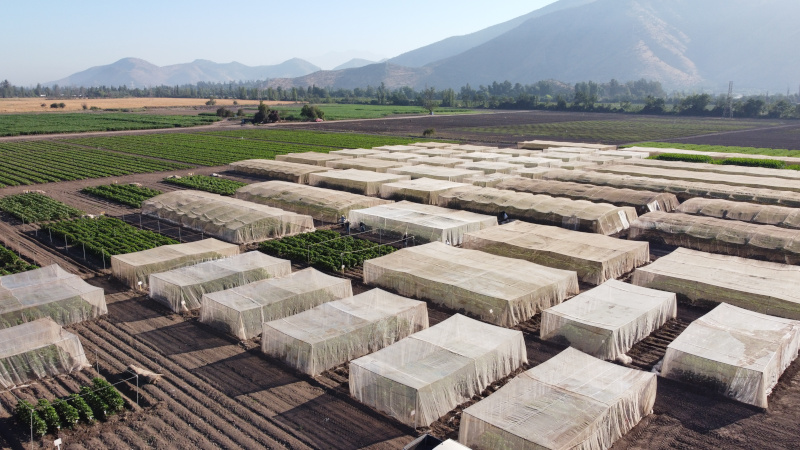When you combine Chile’s abundant sunshine, future-focused regulations, and commitment to innovation, you get a country positioned well for sustainable agriculture practices. Not only do these advantages enable long-term successful crops, but they also prove to be economically beneficial and environmentally responsible.
In Chile, we are lucky to have long, hot, sunny, dry months ideal for crop growth. Those sunny days provide us with another boon – solar power. This is fortunate, because rapid economic growth in the country results in increased energy demands. Solar energy is very affordable compared to the conventional option of coal-generated power.
I recently installed solar panels on my home, and this will eliminate my energy costs. We sized the project to generate excess energy during the day, which is returned to the grid. This earns us credit to offset what we require for nighttime usage.
These benefits extend to our business as well. CIS Agro has two solar installations in our fields for our own use, and 100% of our energy consumed in fields and our processing facility comes from renewable sources. We also have a 30-year lease with energy companies for solar farms on sections of our non-arable land, providing us with significant additional income.

These long hot summers provide strong growing conditions and solar energy, but they also bring a need for a reliable water supply for crops. While we have reservoirs and a steady supply of irrigation water for our operations, we recognize our responsibility to use it wisely, so have established drip irrigation for small trials. For larger plots, we use high efficiency pivot systems, and in high value crops, we add moisture sensors so we can provide exactly the amount of water needed for optimum growth.
I truly aspire to have the least possible impact on my surroundings. Not only does this give me more confidence that I am doing right by the generations to come, but it also proves to be a sound financial decision. The cost to invest in solar panels has decreased to the point that the time to full return on investment has decreased from 9 years to 5.5 years or less.
Chile is committed to moving to renewable energy and supports this goal through regulations, incentives, and investment in research and development, upgrading grid infrastructure, public-private partnerships, and international collaboration. All of this makes it easier and more economical for businesses and citizens to move in this direction as well.
Technological advances will go a long way toward securing a strong future for our generations to come. Something I’m personally excited to see is electric farm equipment, and I think it’s not too far off for us here. I’d love to hear how others in agriculture are integrating sustainable practices. What innovations are you most excited about?









